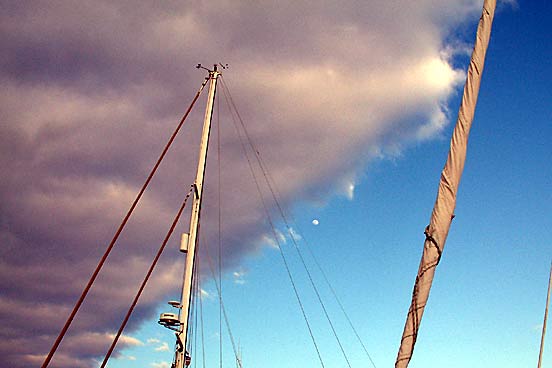Winter in the Bahamas
There was little doubt that this cold front would reach this far south. And it did. The wind blew overnight and settled down some in the morning.
Many boats that were anchored out came in to quickly fill Sampson Cay Marina as the front approached.
The double barreled cold front promises to produce uncertain wind for the next few days. Actually, there are conflicting forecasts. One forecaster says wind from the north, another says wind from the west. Both forecasts say they will not be strong.
Our plan is to leave the marina tomorrow morning and find a decent place to anchor. The only question is, "What type of protection should we seek, from the north or from the west?

The sky is about to be consumed
by the encroaching clouds.
